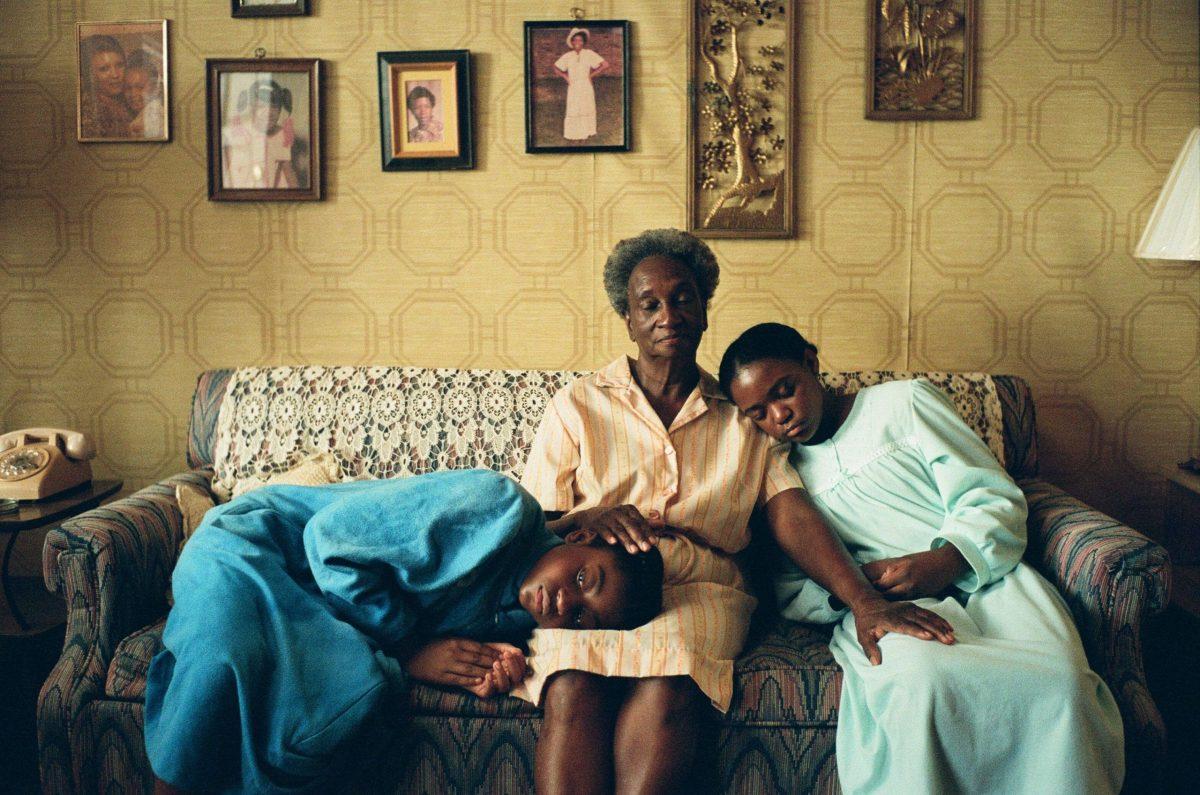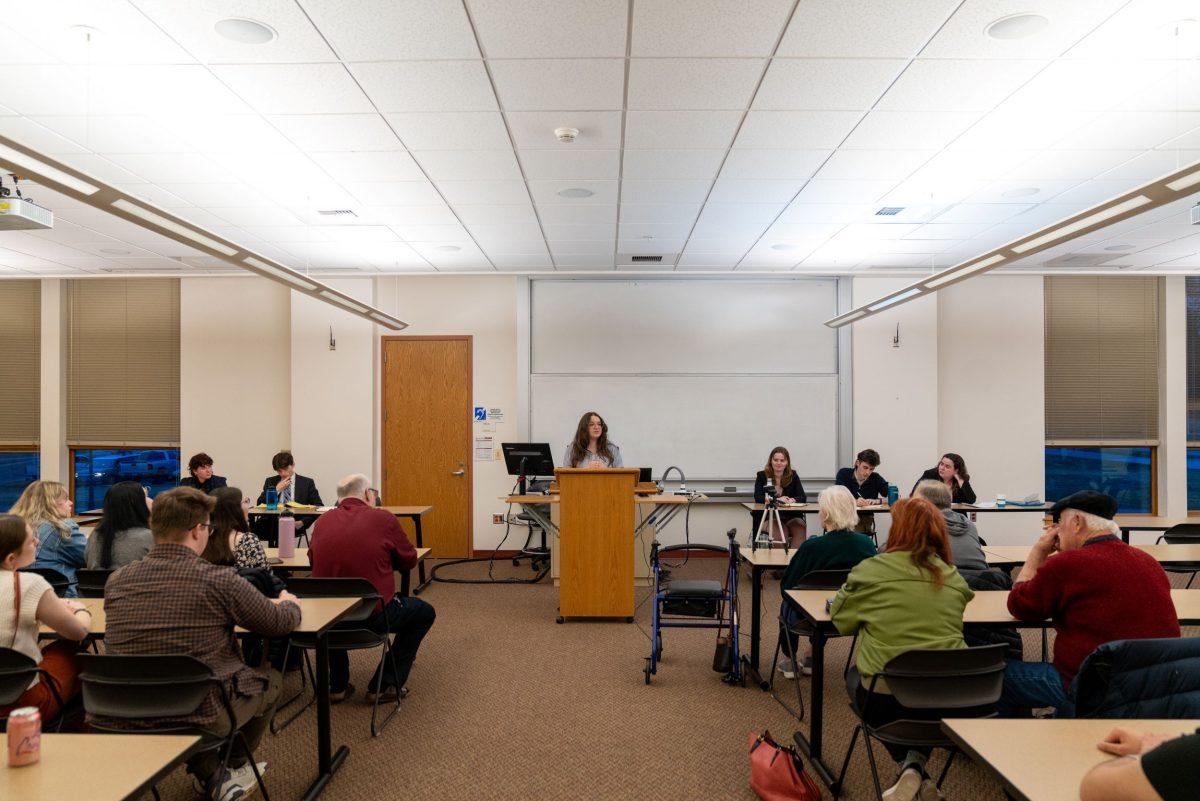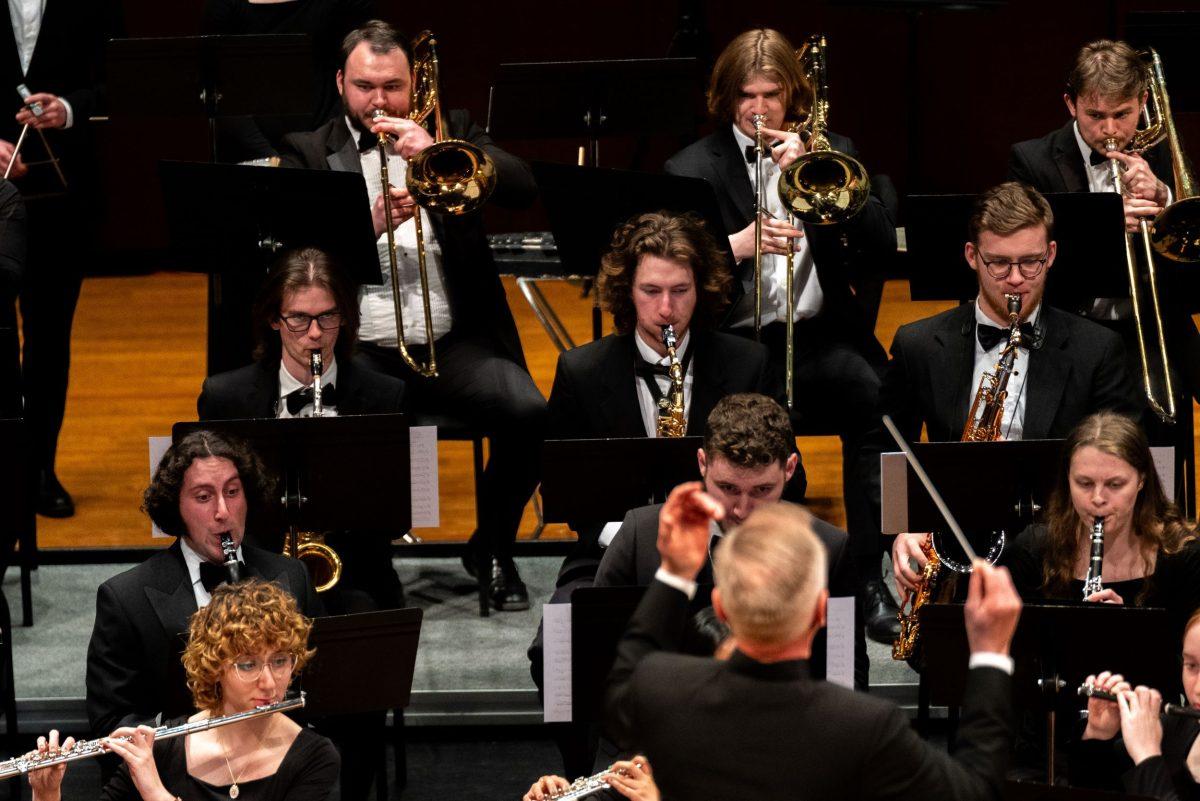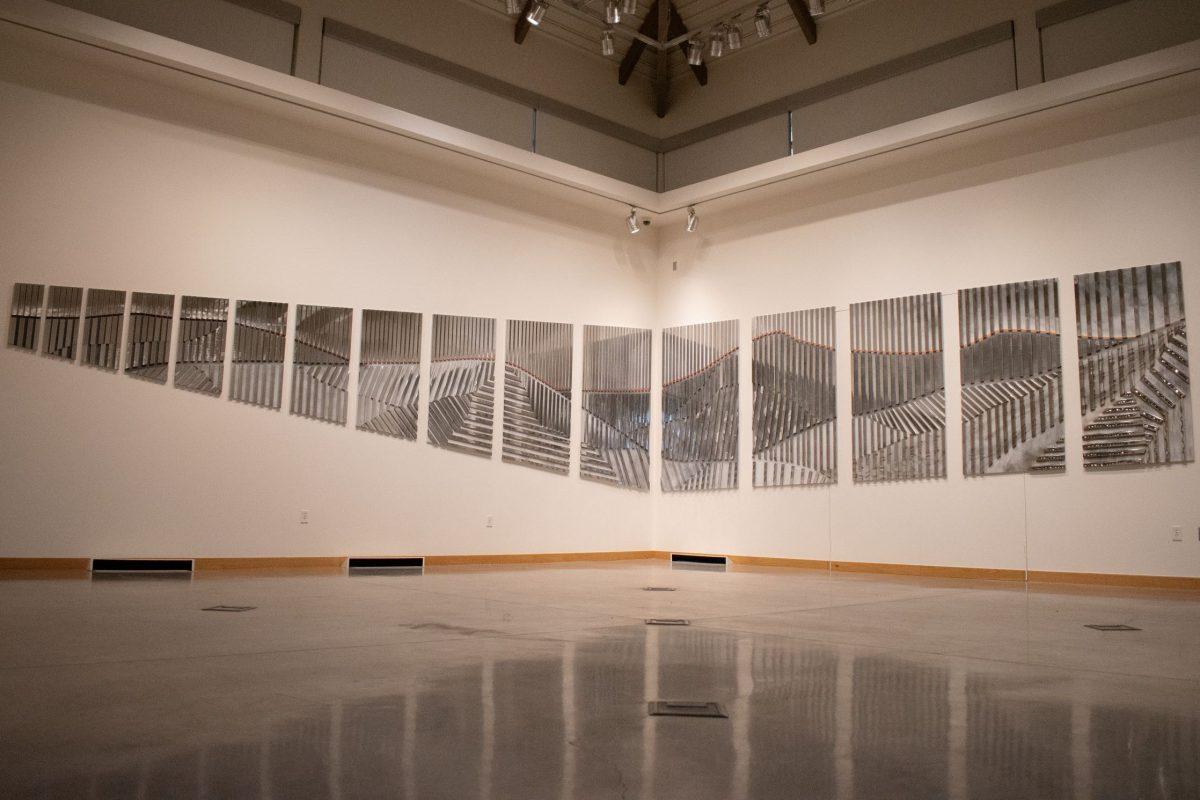 A panel sparked discussion amongst students and staff about traditional gender roles, the church’s attitude toward women, marriage and stereotypes portrayed by the media, after a showing of the documentary “Miss Representation.”
A panel sparked discussion amongst students and staff about traditional gender roles, the church’s attitude toward women, marriage and stereotypes portrayed by the media, after a showing of the documentary “Miss Representation.”
The film is narrated by Jennifer Siebel Newsom, an expectant mother who fears how a world shaped by the media will affect her daughter’s life. She said the media portrays an ideal woman that women buy into and it leads them to self-objectification, depression, and lower confidence and ambition.
“Miss Representation” addressed the degradation of women in advertisements, movies, cartoons, politics, business and news.
English professor Pam Parker was part of the panel discussion and urged the audience to be conscious of their media purchases.
“Think about the images you’re supporting with your money,” Parker said.
Women who have made it to the top of their profession — including Lisa Ling, Condoleezza Rice, Katie Couric and Rachel Maddow — were interviewed in the film. Each of them admitted that for women to be accepted in a position of power there would need to be a “kind of psychological breakthrough.”
In the film Newsom said there have been a few more than 30 women who have served as governors in America. She said there are more women in politics in Cuba, Iraq and Afghanistan.
Sophomore Mackenzie Young said she found watching the film difficult as it made her realize how women were being objectified and portrayed unrealistically by the mass media.
“It was very intense and it made me aware of everything that has been ingrained in me and that has shaped me and how wrong a lot of it is,” Young said. “It broke my heart, actually. I think it’s something that everyone needs to see or hear or at least begin to talk about.”
Young said she hasn’t bought a pop magazine since high school because she didn’t like the false portrayal of women, but has now noticed how those images are everywhere, including her seemingly innocent travel magazine.
“We put too much pressure on ourselves,” Young said. “After seeing this it makes me want to tear those pages right out of my magazine. I compare myself all the time to these images, which is sad because I know they’re false, but it’s hard not to.”
Wondering about where to go from here, Young said she intends to start with practical changes by encouraging her female friends.
“I really want to empower women to be proud of what we’re capable of and I don’t want our fears to hold us back,” Young said.
One issue debated by students after the event was how negative stereotypes affect both women and men, and whether “feminism” was a good term.
“Personally, I struggle to call myself a feminist because I feel that it’s known as a negative term and you don’t want to be a feminist because people are going to look at you and think you hate men or that women should rule the world,” Young said. “I believe in equality, that women and men should be working together. I don’t believe one should be better than the other.”
Junior Greg Wight, who helped put on the event, said he definitely considers himself a feminist in some areas, but is hesitant to call himself that. He said he would rather share ideas than be labeled.
“It’s about an equality between male and female, but it’s often understood as ‘we’re women and we’re going to take over,’” Wight said.
Sophomore Andy Rowland said he recognizes the challenge women face and is also concerned by the portrayal of masculinity in the media.
“I feel like men have certain alpha types that are portrayed in the media and a lot of it is the hyper masculine — you know, if you’re not big, strong and fighting explosions then you’re not a real man,” Rowland said. “So it is a challenge that men face, too, and certain aspects such as cooking, sewing and cleaning are not portrayed as masculine and meant for men.”
Rowland said he felt the misrepresentation of women by the media also affects men’s psychology concerning women.
“I think it gives women a false sense of beauty and men a very narrow view of beauty — that a woman must fit this criteria of skinny waist and large boobs,” Rowland said.
Addressing the audience, Parker encouraged female students to use their voices.
“It’s not enough women, to be good girls,” Parker said. “It’s not enough to get good grades, you have to speak up.”
Contact Samantha Payne at [email protected].






